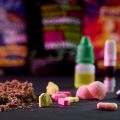The police combat road traffic offenses and violent crimes caused by alcohol and drug abuse, as well as drug-related crimes such as import smuggling, trafficking and drug possession, not only in a repressive manner. The aim of police measures to prevent addiction is to support the original responsible bodies for addiction prevention in order to prevent the development of addiction careers. It also makes an important preventative contribution to addiction prevention by educating young people in particular about the legal aspects, health risks and social consequences of consuming legal and illegal addictive substances and thus encouraging them to behave in accordance with standards.
Police crime prevention at state and federal level
Police addiction and drug prevention
